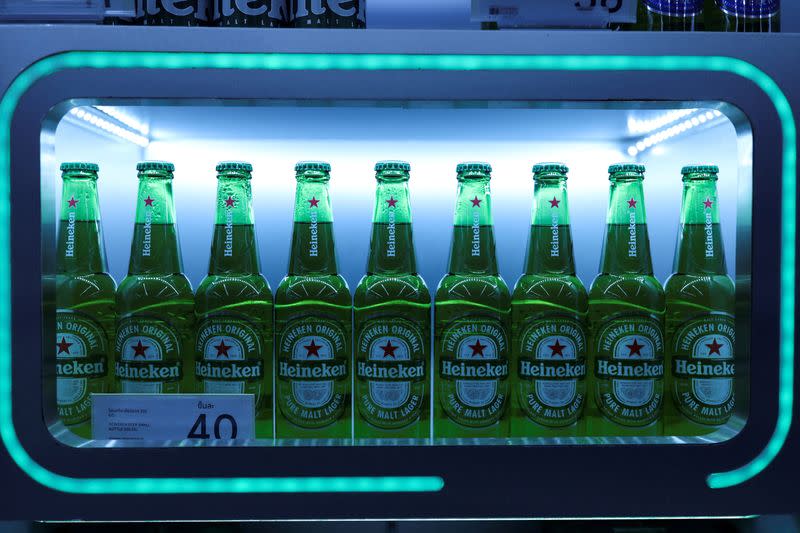Heineken blames Russia exit delay on local paperwork

(Reuters) - Heineken on Tuesday blamed the delay in its Russia exit on local bureaucracy that it said was beyond its control, and reiterated it still planned to exit the country.
Last month, a story by investigative website Follow The Money questioned whether Heineken had followed through on its March 2022 promise to leave Russia, including selling its non-Heineken international brands like Amstel.
"It's challenging to close a transaction in Russia at the moment as rules continue to shift," the Dutch company said, adding its business transfers required many approvals by local authorities, the time frame of which it could not affect.
The company nonetheless acknowledged frustrations around the delay, saying it shared the sentiment.
"There's no ambiguity about our promise: we will leave Russia," Heineken said in a Q&A section on its website on Monday, to which it referred in Tuesday's statement.
The brewer also said on its website that its Russian business needed to introduce new local products to avoid bankruptcy until the full disposal was completed, after its products were removed from the market following Russia's invasion of Ukraine.
"You can't sell a loss-making business and their aim was to keep the business afloat until the transfer of ownership is completed," it said.
Heineken is the third largest brewer in Russia and the local business accounts for just 2% of its global sales, the company said.
Danish rival Carlsberg said on Tuesday its chief executive Cees't Hart would retire at the end of September after seeing through the sale of its Russian business.
(Reporting by Dina Kartit and Olivier Sorgho in Gdansk; Editing by Milla Nissi)

 Yahoo Finance
Yahoo Finance 